When you think of Dubai, your imagination likely conjures up glittering skyscrapers, luxurious shopping malls, and futuristic islands. But as soon as you turn off the gleaming avenues into the labyrinth of the old city, you’ll discover a completely different Dubai. Here, the air smells not of expensive perfume, but of cardamom and roasted coffee, and instead of the hum of supercars, you’ll hear the crackle of freshly baked bread. It’s here, far from the glossy facade, that the true heart of the emirate beats. Our guide will help you taste it.

What is Emirati cuisine? Secrets of bedouins and merchants
To truly appreciate Emirati cuisine, it’s important to understand its essence. It was born out of the harsh realities of the desert and the riches of the Persian Gulf. At its core are simple yet hearty ingredients: lamb, goat, camel meat, fresh fish, rice, and, of course, dates—the "bread of the desert." But the real secret lies in the spices. A unique blend of cardamom, saffron, turmeric, cinnamon, and lumi (dried black lime) creates that unmistakable flavor signature—complex, deep, with a distinctive citrus note—that instantly identifies the dishes of this land. Dishes here are often prepared using slow-cooking methods, making the meat incredibly tender and juicy.
What makes Emirati cuisine unique?: It's an amazing blend of culinary traditions from Bedouin nomads, coastal fishermen, and overseas merchants. It’s based on local ingredients and a unique set of spices that reflect the region’s history and geography.
Many travelers make the same mistake, mistaking popular Middle Eastern dishes for Emirati cuisine. Let’s clear this up once and for all.
Important to know: hummus and shawarma are not Emirati cuisine!: Although you’ll find them on every corner, hummus, shawarma, falafel, and kebabs are vibrant representatives of Levantine (Lebanese, Syrian) cuisine. To experience Dubai’s authentic flavors, look for names like machboos, al haris, or farid on the menu. These are the true gastronomic DNA of the emirate.
Must-try main dishes
To fully enjoy your introduction to Emirati cuisine, be sure to sample these iconic dishes. They are the quintessence of local flavor.
- Machboos: The undisputed king of the Emirati table and the dish you should try first. Imagine a mountain of golden rice, where every grain is infused with a spicy, rich broth in which tender meat—most often lamb or chicken—has been slowly simmering for hours. The aroma of cardamom, saffron, and tart dried lime lumi envelops you even before your first bite. This isn’t just rice with meat—it’s concentrated hospitality and the history of the Emirates all in one plate.
- Al Harees: One of the oldest dishes, traditionally prepared for holidays and weddings. It’s not just porridge; it’s a culinary meditation: wheat and meat slowly simmer together for hours, transforming into a smooth, silky consistency with an enveloping, comforting flavor. Before serving, it’s generously drizzled with ghee, which imparts a nutty aroma and incredible tenderness.
- Thereed: A hearty and wise dish of the Bedouins. Imagine a thick, aromatic stew made from juicy chunks of meat and large vegetables, served not on a plate, but on the thinnest, parchment-like, delicate flatbread called rigag. The bread eagerly absorbs the spicy sauce, becoming an integral part of the dish. It’s eaten by breaking off soaked pieces—truly delicious and heartwarming.
- Samak Mashwi: A tribute to Dubai’s maritime past. Whole fish marinated in a bouquet of local spices and grilled until a crispy crust forms. Beneath it lies tender, flaky flesh that falls apart into delicate flakes, infused with the smoky aroma and taste of the bay.
- Luqaimat: A dessert you simply can’t resist. Picture a scattering of golden balls that crisp delightfully when bitten into, revealing a soft, almost airy interior. And all this splendor is generously coated in rich date syrup and sprinkled with fragrant sesame seeds. Warning: highly addictive!
- Arabic Coffee (Gahwa) and Dates: This isn’t just a drink—it’s an entire ritual and the quintessence of Arab hospitality. You’ll be served light-roasted, almost golden coffee, richly spiced with cardamom, in a tiny cup or saucer. Its strength and spicy bitterness are perfectly balanced by the natural sweetness of juicy dates, which are served alongside. This flavor duet is the perfect ending to any meal.
This is a hospitality ritual: Coffee is always poured with the right hand, and you should also take the cup with your right hand. Refusing the offered treat may be seen as impolite, as it’s an important sign of respect toward the guest.
Where to try it: From authentic courtyards to fine dining
In Dubai, Emirati cuisine can be found in a wide variety of settings—ranging from cozy cafes in the old town to luxurious restaurants in five-star hotels.
The heart of tradition: Historic Dubai (Deira and Al Fahidi districts)
It’s here, amidst the labyrinth of old streets and along the shores of the Creek, that the culinary heart of the city beats. If you’re looking for maximum authenticity, this is the place to go.
- Al Khayma Heritage Restaurant. If you want not just to eat, but to literally take a journey back in time, this is the spot for you. Located in the heart of the historic Al Fahidi district, this restaurant is a true ethnographic oasis, recreating the atmosphere of an old Arab home with a cozy inner courtyard. It’s the perfect place for those seeking a complete cultural immersion. Be sure to order the signature Machboos Lahm (lamb machboos) here to experience what authentic Emirati pilaf should taste like. It’s a wonderful choice for a leisurely family dinner or your first introduction to the country’s cuisine.
- Al Fanar Restaurant & Cafe. A true gastronomic time machine that transports guests back to Dubai in the 1960s, an era before the oil boom and skyscrapers. The interior, filled with retro cars, old televisions, and household items, creates an amazingly warm, nostalgic atmosphere. This place is perfect for those who want not only to enjoy a meal but also to see what the emirate was like just half a century ago. Their menu is renowned for its superb seafood dishes—order the Samak Mashwi to pay tribute to the city’s fishing heritage.
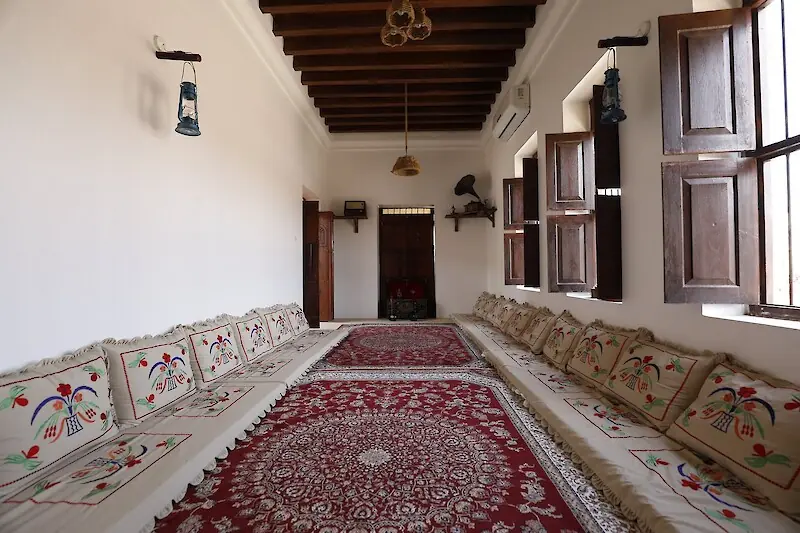
A modern perspective: Elegance and new interpretations
In contemporary districts such as Downtown and Jumeirah, Emirati cuisine takes on a new look—more refined and creative.
- Aseelah. A gastronomic gem located in the Radisson Blu hotel by the Creek. Here, Chef Umesh Mohite doesn’t just cook; he reimagines Emirati traditions, transforming them into haute cuisine. The elegant ambiance and impeccable service make Aseelah the ideal spot for a special occasion. Foodies will appreciate the tasting set, which allows you to explore the full spectrum of flavors, while lovers of gastronomic experiments shouldn't miss the chance to try their famous burger made from tender camel meat.
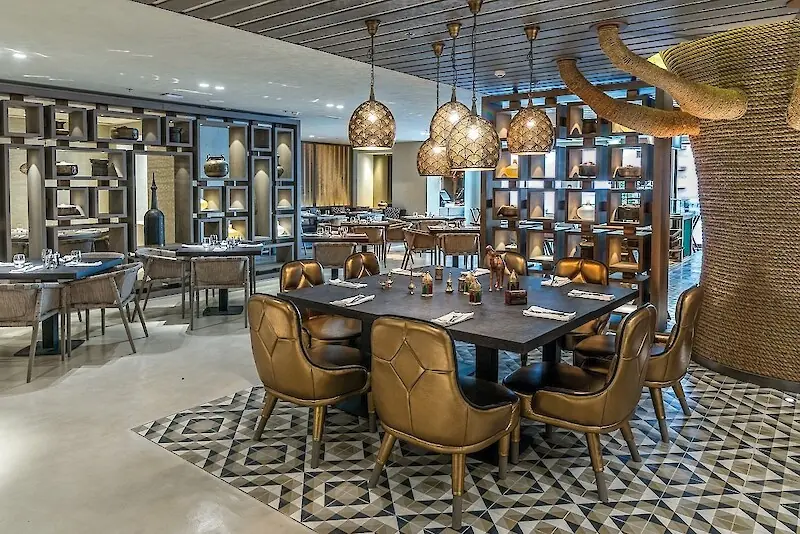
- SMAT Café & Restaurant. A "secret spot" beloved by the local trendy crowd for its bold and creative take on classics. Here, Emirati dishes familiar from childhood appear in an ultra-modern, incredibly photogenic presentation. This isn't just dinner—it's a true visual spectacle. If you're looking for a non-touristy place with a vibrant atmosphere and want to see what Emirati cuisine looks like in the 21st century, this is definitely the place for you. Perfect for young people, food bloggers, and anyone who appreciates creativity.
Planning a gastronomic journey: Practical tips
To ensure your introduction to Dubai's cuisine goes perfectly, here are a few expert tips.
Reservations, dress code, and transportation
- Reservations: In popular spots like Al Fanar and all fine-dining restaurants, it's best to book a table in advance, especially for Friday or Saturday evenings. You can do this online or by phone 2-3 days ahead.
- Dress Code: At cafes in the Old Town, you can dress casually, but out of respect for local culture, it's better to cover your shoulders and knees. In premium restaurants, a smart casual dress code applies.
- Transportation: Historical districts such as Al Fahidi and Deira are easily accessible by metro. For trips to other areas, taxis are the most convenient option.
Budget: from street food to haute cuisine
How much does it cost to truly experience Dubai?
- Budget-friendly (30–60 AED per person): Small street cafes where you can enjoy authentic food.
- Mid-range (70–150 AED per person): A full dinner at authentic restaurants like Al Khayma or Al Fanar.
- Premium (250+ AED per person): A fine dining experience at upscale restaurants such as Aseelah.
How to save money?: Many restaurants offer business lunches at great prices on weekdays (Sunday through Thursday). Also, check coupon apps like Entertainer or Groupon UAE— they often have 'buy one, get one free' deals or discounts on your entire bill.
Cultural code and common mistakes: How to become a welcome guest
- Etiquette Rules (and a Delicious Dinner):
- Use your right hand for eating and handing items.
- Accept offered coffee as a sign of respect.
- Don't hesitate to ask waiters about dishes—they'll be happy to help you choose.
- Leave small tips (5-10%) in addition to the service charge for excellent service.
- A few 'no's' to help you avoid awkward situations:
- Avoid seeking authentic cuisine in restaurants catering exclusively to tourists.
- Ordering too many dishes at once—portions are often very large, so be sure to ask the waiter about their size.
- Expecting alcohol service in traditional restaurants (it’s only available at establishments located within hotels).
- Dressing too revealingly for dinner in the Old Town.
A taste that changes your perspective on the city
Ultimately, exploring Emirati cuisine is the key to discovering a different Dubai—one hidden behind the gleam of skyscrapers. In the aroma of machboos, you’ll hear echoes of ancient caravan routes, and in the ritual of serving coffee with dates, you’ll feel the genuine, non-touristy warmth of Arab hospitality. Setting aside just one evening for dinner in the Old Town isn’t merely about eating—it’s about connecting with the soul of this place. And it’s precisely this aftertaste—spicy, warm, and heartfelt—that will stay with you long after you leave the Emirates, making your journey truly complete.
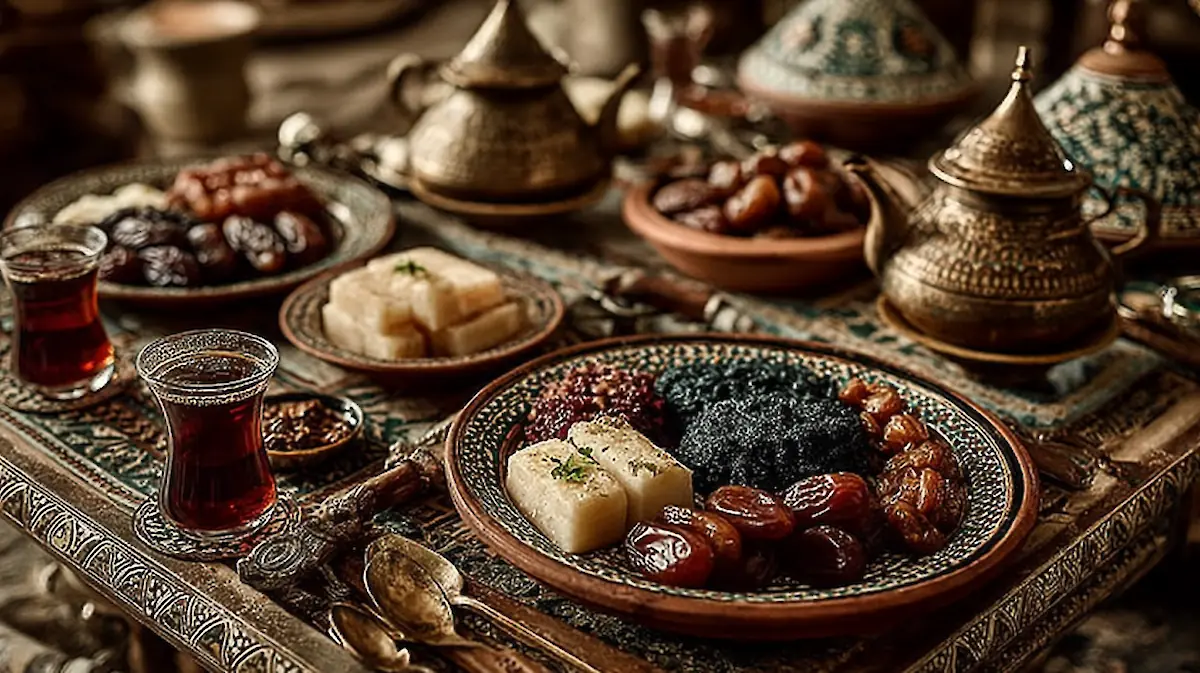
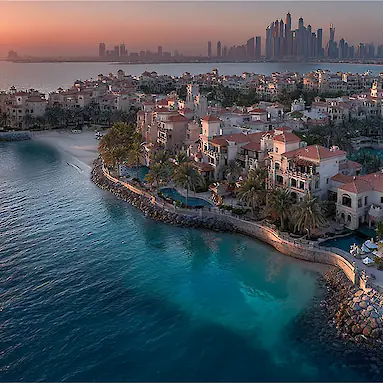










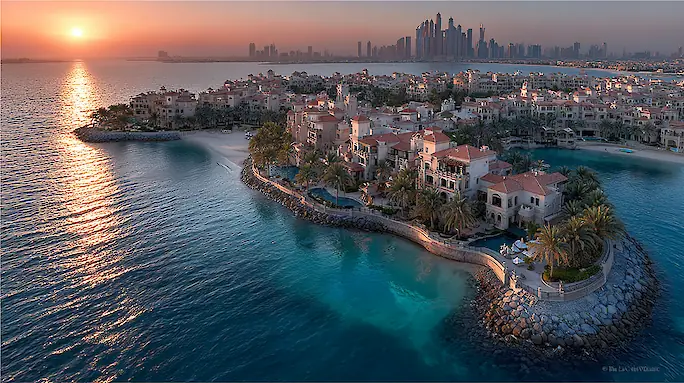










Comments